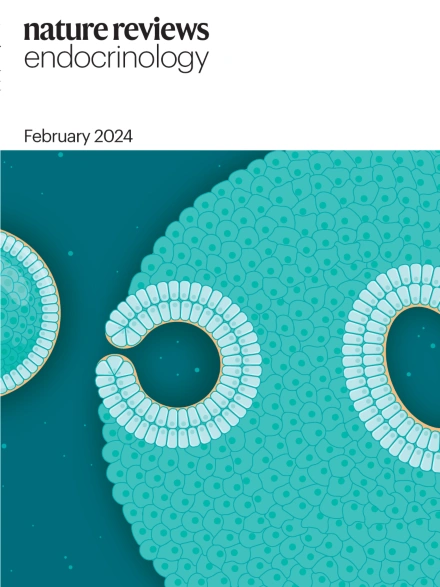Antigen-specific Treg cells induce infectious tolerance
IF 40
1区 医学
Q1 ENDOCRINOLOGY & METABOLISM
引用次数: 0

抗原特异性Treg细胞诱导感染性耐受
调节性T (Treg)细胞可以诱导免疫耐受,使Treg细胞治疗成为预防自身免疫的一种很有前途的策略。迄今为止,Treg细胞疗法的临床试验显示疗效有限,可能是由于使用的多克隆Treg细胞缺乏抗原特异性。《科学转化医学》杂志的一项研究表明,在1型糖尿病小鼠模型中,表达HLA-A2抗原特异性嵌合抗原受体(CAR)的Treg细胞(A2-CAR Treg细胞)能够诱导持久耐受性。单独注射BDC2.5 Teff细胞的小鼠出现了高血糖和移植和天然胰岛的自身免疫破坏。在与A2-CAR Treg细胞共同治疗的小鼠中,82%的小鼠免受高血糖的影响,而与BDC2.5 Teff细胞加多克隆Treg细胞治疗的小鼠中只有33%的小鼠受到保护。正如预期的那样,A2-CAR Treg细胞阻止了移植的HLA-A2+胰岛移植物的自身免疫破坏。然而,令人惊讶的是,胰腺中的HLA-A2−胰岛也受到保护,这表明即使没有HLA-A2抗原,A2-CAR Treg细胞也能诱导全身耐受。
本文章由计算机程序翻译,如有差异,请以英文原文为准。
求助全文
约1分钟内获得全文
求助全文
来源期刊

Nature Reviews Endocrinology
医学-内分泌学与代谢
CiteScore
42.00
自引率
0.70%
发文量
158
审稿时长
6-12 weeks
期刊介绍:
Nature Reviews Endocrinology aspires to be the foremost platform for reviews and commentaries catering to the scientific communities it serves. The journal aims to publish articles characterized by authority, accessibility, and clarity, enhanced with easily understandable figures, tables, and other visual aids. The goal is to offer an unparalleled service to authors, referees, and readers, striving to maximize the usefulness and impact of each article. Nature Reviews Endocrinology publishes Research Highlights, Comments, News & Views, Reviews, Consensus Statements, and Perspectives relevant to researchers and clinicians in the fields of endocrinology and metabolism. Its broad scope ensures that the work it publishes reaches the widest possible audience.
 求助内容:
求助内容: 应助结果提醒方式:
应助结果提醒方式:


